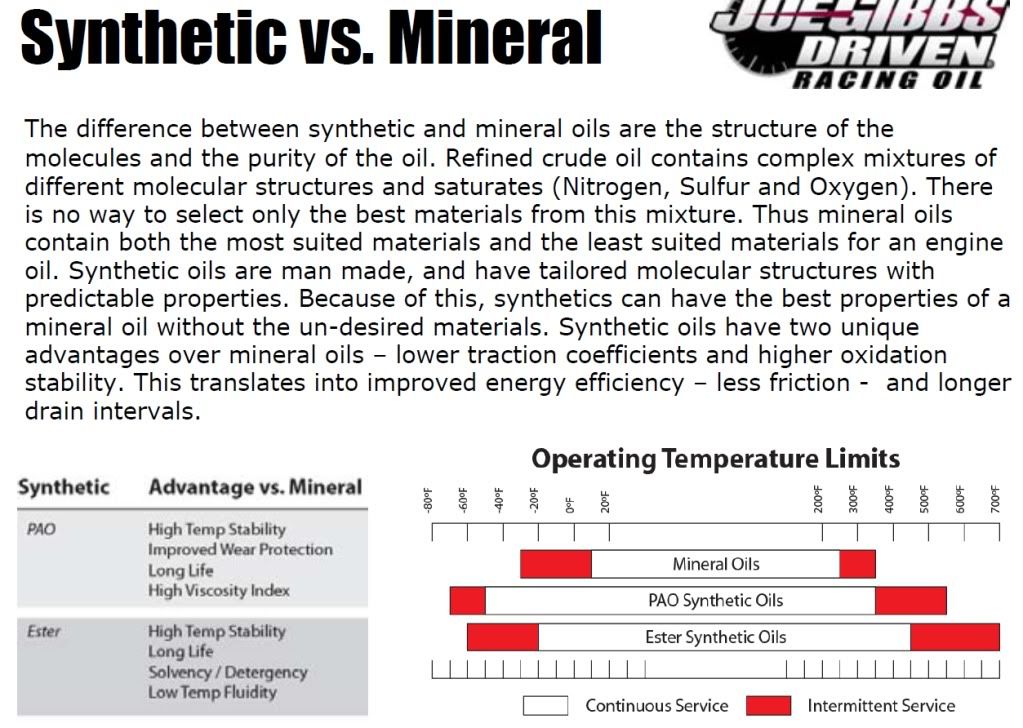Originally Posted By: jlvink
Originally Posted By: mechanicx
But is that Redline a dual purpose oil or just a race oil? All that phosporus and moly make me think it's a race oil. I'd probably drain it out after coming home from track use if I intended to do street driving.
I think I would just get the revised oil tank, and use 5/10-30 SM or maybe the 0-40 if you want a little thicker oil since you wanted a dual purpose oil.
The oil I listed was Redline's street 5W-40. I already have the larger dry sump tank. If I go with a 3,000 mile OCI, would I really have to worry about the additives?
John
I don't know if you would have to worry about the race level additives like the moly for prolonged street use. If Redline claims it's a dual purpose oil then you would have to depend on their claim. If you have one of the larger tanks with revised and improved baffling, then maybe you have no oil starvation issues to worry about? I think oil starvation being fixed is the number one issue, then maybe oil temp and viscosity and more zddp after that. It's not something I can really say if too much additives might be a problem over time. If Redline says it is suitable as a street oil, then I can't say it's not. I just think if it were me, I'd just make sure I had an oil tank that was proven to prevent starvation and use some type of SM oil.
Originally Posted By: mechanicx
But is that Redline a dual purpose oil or just a race oil? All that phosporus and moly make me think it's a race oil. I'd probably drain it out after coming home from track use if I intended to do street driving.
I think I would just get the revised oil tank, and use 5/10-30 SM or maybe the 0-40 if you want a little thicker oil since you wanted a dual purpose oil.
The oil I listed was Redline's street 5W-40. I already have the larger dry sump tank. If I go with a 3,000 mile OCI, would I really have to worry about the additives?
John
I don't know if you would have to worry about the race level additives like the moly for prolonged street use. If Redline claims it's a dual purpose oil then you would have to depend on their claim. If you have one of the larger tanks with revised and improved baffling, then maybe you have no oil starvation issues to worry about? I think oil starvation being fixed is the number one issue, then maybe oil temp and viscosity and more zddp after that. It's not something I can really say if too much additives might be a problem over time. If Redline says it is suitable as a street oil, then I can't say it's not. I just think if it were me, I'd just make sure I had an oil tank that was proven to prevent starvation and use some type of SM oil.


